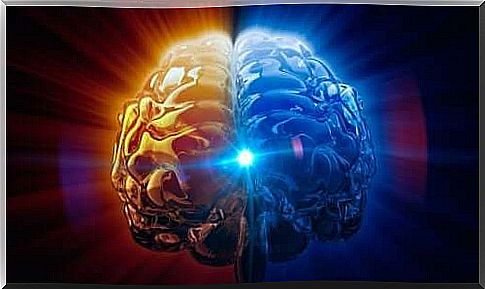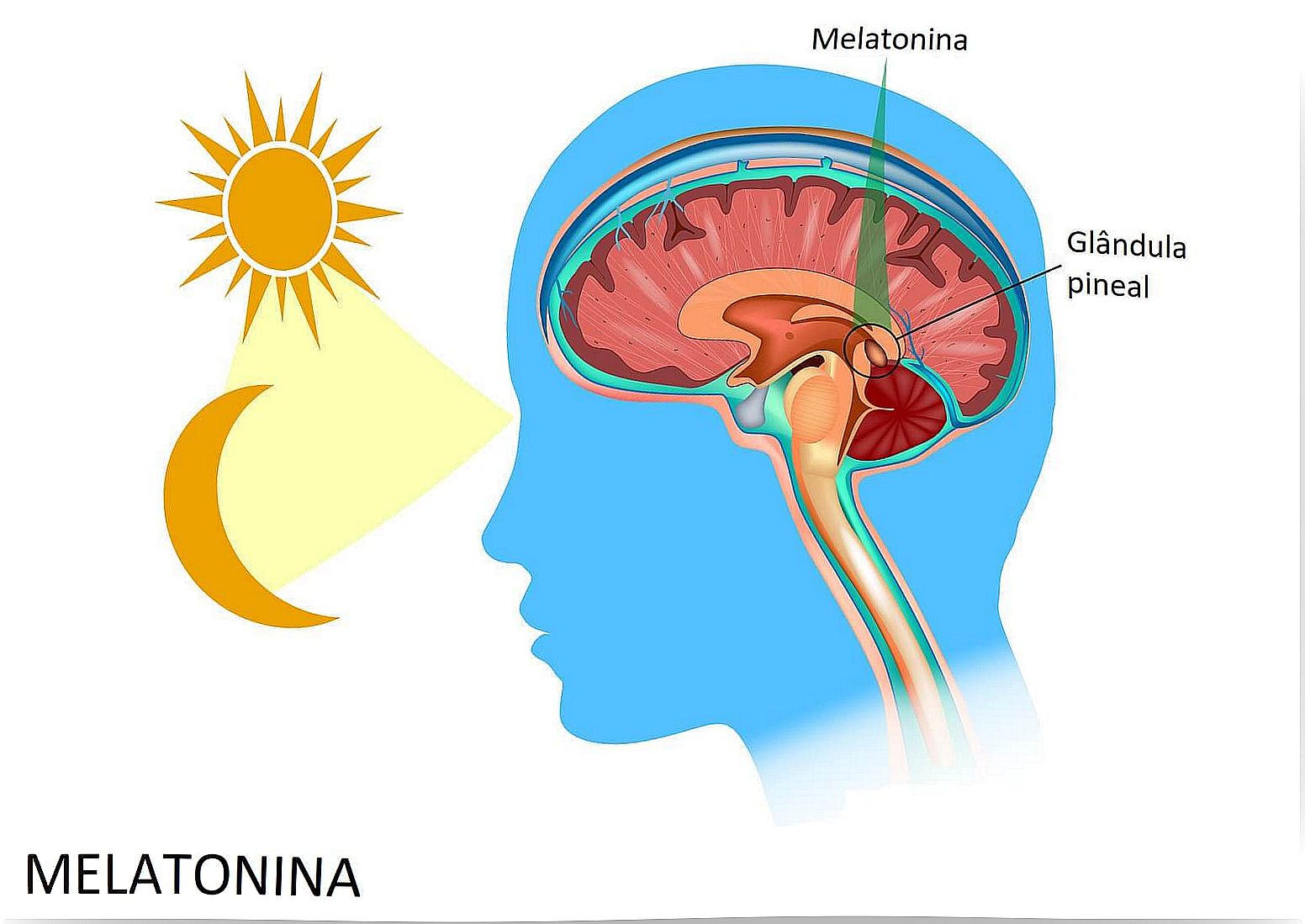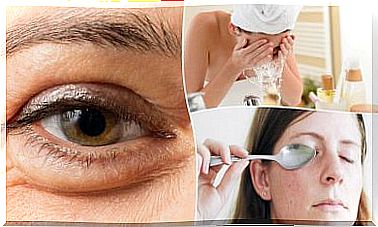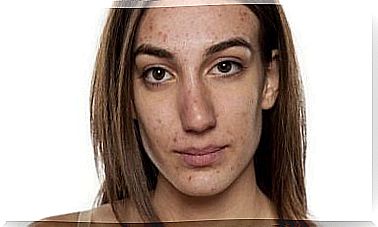Pineal Gland: The Cycle Regulator And The Vestigial Eye

The pineal gland or cerebral epiphysis is pineapple-shaped and plays a fundamental role when it comes to regulating sleep-wake cycles. Furthermore, it regulates circadian rhythms during the seasons.
Pineal Gland Characteristics

The pineal gland is small (measuring only 8 mm) and is located in a very special place in the brain, right between the two hemispheres, in the region where the two parts of the thalamus meet. Something that undoubtedly stands out about the pineal gland is the whole world of spirituality, magic and tradition that has built up around it.
This subject is not new. In fact, Descartes said in his time that the human being’s soul is in it. Furthermore, according to more mystical traditions, she is like a “third eye”.
In addition to these less scientific approaches, the truth behind this little gland goes far beyond what they’ve been able to tell us.
Its role in regulating cycles
Melatonin is a hormone that facilitates rest, induces sleep and strengthens the immune system. It also prevents premature aging of the brain.
It is important to know that it is the pineal gland that fulfills the unique function of producing melatonin in the dark and inhibiting it when there is light. This process is regulated by the photosensitive cells in the retina, which detect light and send information to the pineal gland. It is, without a doubt, a wonderful and perfect process.
In addition, the correct regulation of this hormone allows you to enjoy greater energy and well-being. However, the biggest problem with the pineal gland is that it ages early.
gland functioning

The pineal gland works as a perfect biological clock capable of allowing a better adaptation to seasonal changes and rest at night. Furthermore, it allows you to be in tune with the cycles of nature.
This is certainly something very complex these days due to our busy lifestyle and, above all, to the fact that we are always surrounded by artificial lights that so alter the balance of the pineal gland.
- This gland is very sensitive to factors such as pollution, electric light, stress and vitamin D deficiency.
- The pineal gland is the structure of the brain that receives the most blood. In fact, it gets almost the same amount as the kidneys.
- It loses its functionality in adolescence.
- As you age, the pineal gland tends to calcify.
- A calcified pineal gland loses its functionality. Not only does this result in sleep disturbances, tiredness, weakness or memory problems, it also increases your likelihood of reaching old age with a less agile brain when it comes to cognitive abilities.
The “third eye” or the vestigial eye of the human being
As we said at the beginning, the pineal gland symbolizes, for many spiritual philosophies, a third eye capable of fostering a spiritual awakening, as well as more sensitive capacities or a heightened state of consciousness. Practices like yoga benefit this brain center.
Also, it is interesting to know that there are certain animals that have a “third eye”. The tuatara, for example, is a type of reptile native to New Zealand that has a small eye just above its head that fulfills a series of very special functions: a hormonal and a thermoregulatory one.
How to take better care of the pineal gland?

The pineal gland’s biggest enemy is calcification. It’s very difficult to prevent this from appearing over the years, but you can slow it down through a range of activities and a lifestyle that can preserve your health.
Check out these tips:
- You must live according to the cycles of nature and sunlight. In other words, it is recommended to take advantage of the light hours to walk and take “baths” in the sun (always safely and avoiding the central hours of the day).
- Lights from computers, cell phones or televisions are very harmful to the pineal gland.
- Ideally, you should avoid using these devices for at least an hour before going to bed.
- You must sleep in complete darkness.
- Vitamin D is ideal for the care of this gland.
- Pollution, especially fluoride, is harmful to the pineal gland. One way to get rid of excess fluoride is to eat fresh fruit, especially tamarind.
Do not hesitate to improve your lifestyle and take care of this small brain structure called the pineal gland that so favors your well-being and health.









